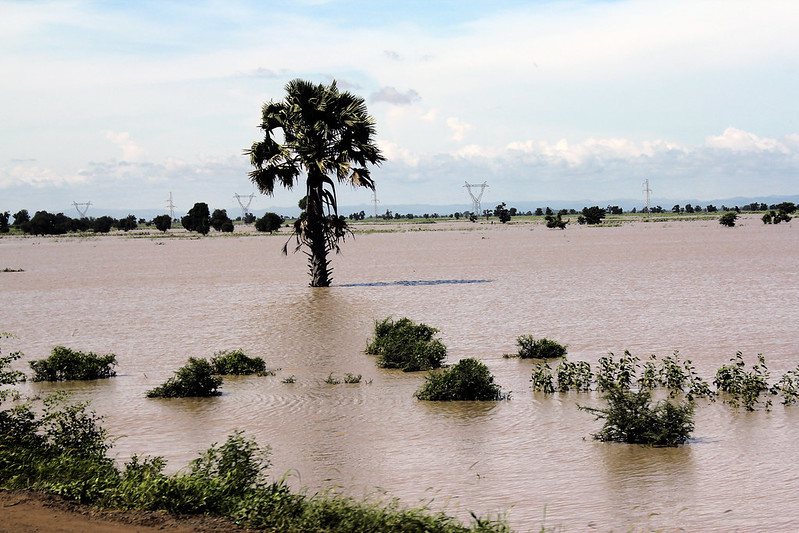Agriculture belongs to a sector that is vulnerable to several risks or shocks. These risks can crystallize anytime, especially those directly related to the impact of climate change. Beyond putting measures to mitigate the impact of these shocks, the measures of its effectiveness depend on the level of preparedness and the response. How do we respond to external shocks at the farm level?
One of the impacts of climate change is flooding, caused by too much rainfall. Flood water always finds new channels to discharge its content; which could be on the farms or homes of thousands of people, especially those who live in rural communities. This is because the majority of farmers most times establish their farms and or communities along or around waterways, moving them closer to their livelihood. Whenever a flood incident happens, it adversely affects them.
In recent times, we have witnessed several cases of flooding in some communities in Nigeria (and currently in Maiduguri due to a damaged dam). Many farmers completely lose their livelihood (farms) and even their houses, and thereby relocate to an internal displaced persons (IDPs) camp, where farming activities are reduced. Many times, it is difficult for these farmers to recover from their losses which has a negative impact on the food system.
Sadly, this kind of incidents has become our reality year-in-year-out in many developing countries. The emergency preparedness and recovery system is still weak (more of reactive than proactive measures) especially for the farmers, losing thousands of hectares of farmland, farmers and other supporting farm staff or workers. We can no longer treat this incident with levity. We need to develop an effective early warning system, a working emergency response system that can save as many people as possible in cases of crisis and a recovery system that helps farmers (in particular) to bounce back within a short period of time and establish them to where they were or better before the crisis.
As we put efforts towards achieving food security, we need to support crisis management especially at production level to savage all the gains achieved so far. Also, we need to invest in emergency preparedness in the face of the impact of climate change. Prevention is cheaper than control, let us establish more prevention measures to improve productivity rather than always initiating a control system which is more expensive and unsustainable (if it becomes a norm as we currently operate). Achieving food security should not be addressed using a fire brigade approach, but rather by proactive measures that focus more on preventive measures than control. Let's become more intentional with our reality; every reality should be pre-planned.
Yours-in-Service
Babatunde
In recent times, we have witnessed several cases of flooding in some communities in Nigeria (and currently in Maiduguri due to a damaged dam). Many farmers completely lose their livelihood (farms) and even their houses, and thereby relocate to an internal displaced persons (IDPs) camp, where farming activities are reduced. Many times, it is difficult for these farmers to recover from their losses which has a negative impact on the food system.
Sadly, this kind of incidents has become our reality year-in-year-out in many developing countries. The emergency preparedness and recovery system is still weak (more of reactive than proactive measures) especially for the farmers, losing thousands of hectares of farmland, farmers and other supporting farm staff or workers. We can no longer treat this incident with levity. We need to develop an effective early warning system, a working emergency response system that can save as many people as possible in cases of crisis and a recovery system that helps farmers (in particular) to bounce back within a short period of time and establish them to where they were or better before the crisis.
As we put efforts towards achieving food security, we need to support crisis management especially at production level to savage all the gains achieved so far. Also, we need to invest in emergency preparedness in the face of the impact of climate change. Prevention is cheaper than control, let us establish more prevention measures to improve productivity rather than always initiating a control system which is more expensive and unsustainable (if it becomes a norm as we currently operate). Achieving food security should not be addressed using a fire brigade approach, but rather by proactive measures that focus more on preventive measures than control. Let's become more intentional with our reality; every reality should be pre-planned.
Yours-in-Service
Babatunde
Related



